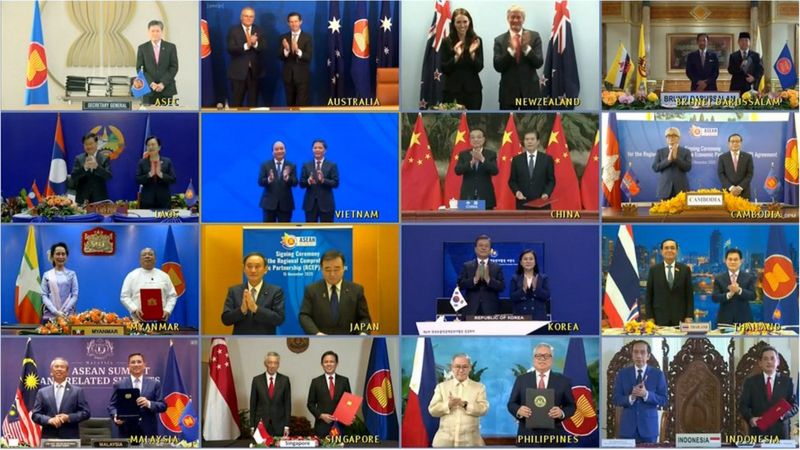The world’s largest Free Trade Agreement has been signed by the fifteen Asia-Pacific countries.
On November 15, the world’s largest free trade agreement was signed among the 10 Association of Southeast Asian Nations (ASEAN) countries, Brunei, Cambodia, Indonesia, Laos, Malaysia, Myanmar, Philippines, Singapore, Thailand, and Vietnam along with Australia, China, Japan, New Zealand and South Korea.
The largest free trade agreement named Regional Comprehensive Economic Partnership (RCEP) consists of 30% of the global GDP and about a third of the world’s population.
As one of the prime focus of RCEP is standardizing trade rules across 15 countries in order to make it easier for everyone to do business, the agreement will also be providing several countries with multiple benefits that will assist them in trading goods and services along with new and better investments as well.
One of the main benefits of RCEP is that it will be eliminating tariff by a great extend. In fact, RCEP is expected to eliminate a range of tariffs on imports within a 20 year period. RCEP will also include provisions on intellectual property, telecommunications, financial services, e-commerce and professional services.
As the agreement was finally signed after a wait of about eight years, several signatories has said that they are glad that the agreement was signed during the Covid-19 pandemic. This is because, the leaders hope that RCEP will help the countries recover from the losses they had to face due to the pandemic.
“Under the current global circumstances, the fact the RCEP has been signed after eight years of negotiations brings a ray of light and hope amid the clouds,” said Chinese Premier Li Keqiang regarding RCEP.
India was also supposed to be a part of RCEP agreement until they backed out of the negotiations on 2019 due to concerns on how the agreement would impact their agricultural sector. However, according to signatories, the deal was still open for India to join in the future.





